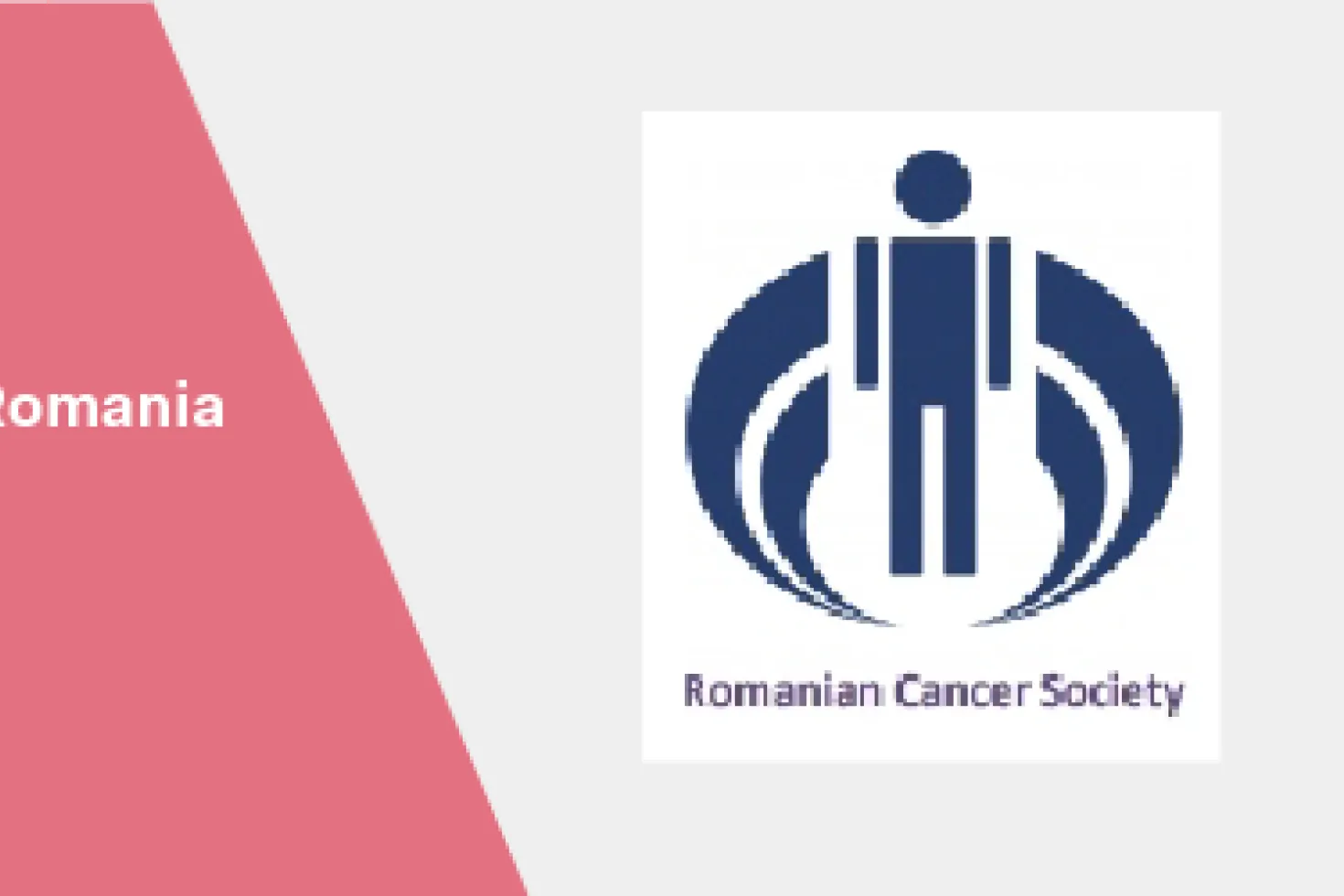Improved quality of life for metastatic breast cancer patients in Romania

Context
In Romania, the standard of care for cancer patients typically refers to medical treatment, such as medication, surgical or radiotherapy, and includes very limited support services with regards to psychosocial support, or patient-centred interventions. As a result, metastatic breast cancer (MBC) patients’ psychosocial needs are not fully supported, despite the distress and anxiety that can be associated with such a diagnosis. Based on the results of a qualitative needs assessment and international guidelines for advanced breast cancer, Societatea Romana de Cancer [the Romanian Cancer Society] sought to address this issue and improve the quality of services delivered to MBC patients by developing a standard of care, which included psychosocial services.
Societatea Romana de Cancer was established in 1993 and its mission is to improve the quality of life of cancer patients in Romania and to promote prevention.
Project description
A SPARC MBC Challenge grant was awarded to Societatea Romana de Cancer in 2017 to implement their project titled, “Improved quality of life for metastatic breast cancer patients in Romania”.
To inform the development of the standard of care, Societatea Romana de Cancer conducted a needs assessment involving in-depth interviews with 20 breast cancer patients, half of whom had metastatic disease. Subsequently, Societatea Romana de Cancer engaged professionals from the Oncology Institute “Prof. Dr. Ion Chiricuta” Cluj-Napoca (IOCN), the leading government-funded hospital and dedicated cancer centre in Romania, established in 1929. As a result, a standard of care specific for MBC patients was developed, tested and integrated in the medical practice of the Institute’s activities.
Furthermore, information materials were developed for MBC patients. To strengthen the information provided to patients, Societatea Romana de Cancer also conducted a community mapping, which consisted of identifying existing local psychosocial services, coordinating these services with the social services designed by Societatea Romana de Cancer, creating a comprehensive list of all the services and disseminating this list to MBC patients and medical providers.
Finally, the standard of care, support services list and information materials were disseminated through meetings with professionals from oncology wards and via the Societatea Romana de Cancer website.
Impact
Based on the results of the needs assessment and a literature review, Societatea Romana de Cancer successfully developed a standard of care including psychosocial services available for women with breast cancer and MBC, which was then integrated in the services they offered and into IOCN’s routine procedures.
Additionally, two information guides on MBC and pain management were created to inform MBC patients on the complexity of their diagnosis and the full list of psychosocial services available to them (including those designed by Societatea Romana de Cancer, which included support groups and counselling on nutrition).
“I felt alone. I felt there were only my problems and it was just me. This project made me feel that I am part of a community of women with the same problems and that there is hope!”
– Claudia, MBC support group member
Societatea Romana de Cancer reported that the information materials will continue to be used in their daily activities and they plan to disseminate them at a regional and national level. They also hope to promote the inclusion of the psychosocial services in existing health policies.
More
- Facebook Page: Societatea Romana de Cancer
- Brochure: Metastatic Breast Cancer
- Brochure: Pain Management for Advanced Cancer
(Information from the project description and context is compiled from the SPARC reports)
Last update
Friday 03 February 2023